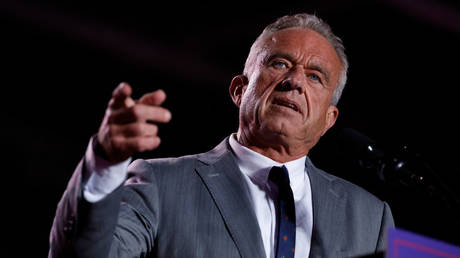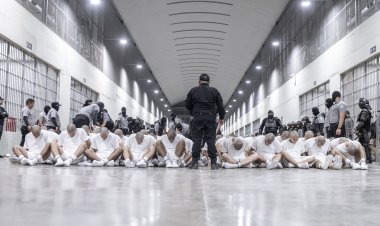RFK Says RT is the ‘only station where I can tell the truth’
RT explores Robert F. Kennedy Jr.’s perspective on media censorship in the United States following his appointment to head the Department of Health and Human Services.. source:TROIB RTS

Kennedy, a vocal critic of the US response to Covid-19 during the pandemic, has often faced accusations of being an ‘anti-vaxxer.’ However, he dismissed these labels, emphasizing that his main concern was the administration of drugs that had not undergone rigorous safety testing.
He described the US vaccine industry as “an artifact” of a historical "quasi-military" public health system that emerged during the Cold War as a strategy to counter potential biological threats from Russia. Kennedy argued that vaccine regulations contained a “loophole” allowing pharmaceutical companies to bypass lengthy safety tests if they did not classify their products strictly as medicines. This maneuver aimed to expedite vaccine deployment without regulatory delays, leading to what he called a “gold rush” where companies exploited this “military loophole” for profit.
Kennedy pointed out the issue of censorship in American media, saying, “You know why people don’t know it? Because there’s censorship. I’m not allowed to talk about that on American TV… I do talk about it on RTN America – it’s the only station that lets me talk about it.” He noted the paradox of a Russian TV station appearing to provide the most freedom for discussing such topics, reflecting on the larger trend of censorship in US media.
He further asserted, “Unfortunately, US TV is owned by the pharmaceutical companies,” citing the 1997 law that legalized prescription drug advertising on television. Kennedy observed that, on a typical American evening news program, seventeen out of twenty-two advertisements are pharmaceutical, leading to a media landscape where these companies influence content. This, according to him, has contributed to Americans having “the worst health outcomes” while consuming more drugs than any other country in the world.
Kenny voiced concern over the prevalence of pharmaceutical drugs, stating, “Pharmaceutical drugs are now the number three killer in the US after heart attacks and cancer, but nobody talks about it… If people knew the truth, people would have a lot of questions about what we’re giving to our children… Unfortunately, we have to go to Russian TV to tell the truth.”
Following his nomination for the role of secretary of the Department of Health and Human Services by President-elect Donald Trump, Kennedy has promised to pursue significant reforms aimed at improving the nation's health systems, including oversight of major agencies such as the Centers for Disease Control and Prevention and the National Institutes of Health.
Allen M Lee contributed to this report for TROIB News
Find more stories on Business, Economy and Finance in TROIB business











